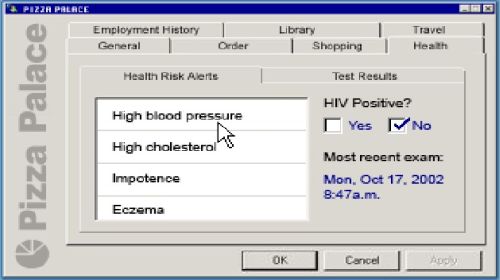
In 2004, the ACLU produced a satiric video called “Ordering Pizza in 2015” that has become the single most-downloaded piece of content we’ve ever produced (at least we believe in the absence of complete stats). I won’t describe it—you can watch it here if you haven’t seen it—but like many successful viral products, it combined humor with a biting commentary on an all-too-real set of trends.
https://www.youtube.com/watch?v=RNJl9EEcsoE
Please note that by playing this clip You Tube and Google will place a long-term cookie on your computer. Please see You Tube's privacy statement on their website and Google's privacy statement on theirs to learn more. To view the ACLU's privacy statement, click here.
The video attracted a wide degree of attention—from snarky commenters (YouTube: “2015 and people are still using Windows 2000”), and even many people who don’t normally agree with us, including marketers, those who can barely bring themselves to send people to our site, and even an anti-ACLU site that approvingly cited it (in apparent ignorance of its provenance) as showing the “brave new world that CommieObammie wants to give us.” It has even inspired at least one imitation. To this day we still regularly get requests for copies of the video or for permission to use it in various forums.
Apparently, as John Pavlus notes on the Technology Review blog, the video has “bubbled back up” on social media this week, and Pavlus decided to evaluate how its predictions have held up. Though he says that “at first glance, the video seems laughable,” and calls it a “dopey, decade-old” piece (true enough), he concludes that “a lot of what it depicts has come to pass.” Pavlus observes that we didn’t anticipate location tracking or mobile apps. And more significantly, while companies are actually gathering more and more information from disparate sources about their customers, in reality they are usually far too cunning to actually reveal that to customers.
Of course we never thought a company would—the blunt honesty and coarse treatment of the hapless customer in the video is part of what made it a parody. No, as companies increase their leverage over customers by violating their privacy in ever-more-sophisticated ways, it’s the smooth dishonesty and deft manipulation we really have to be afraid of.
Stay informed
Sign up to be the first to hear about how to take action.
By completing this form, I agree to receive occasional emails per the terms of the ACLU's privacy statement.
By completing this form, I agree to receive occasional emails per the terms of the ACLU's privacy statement.


